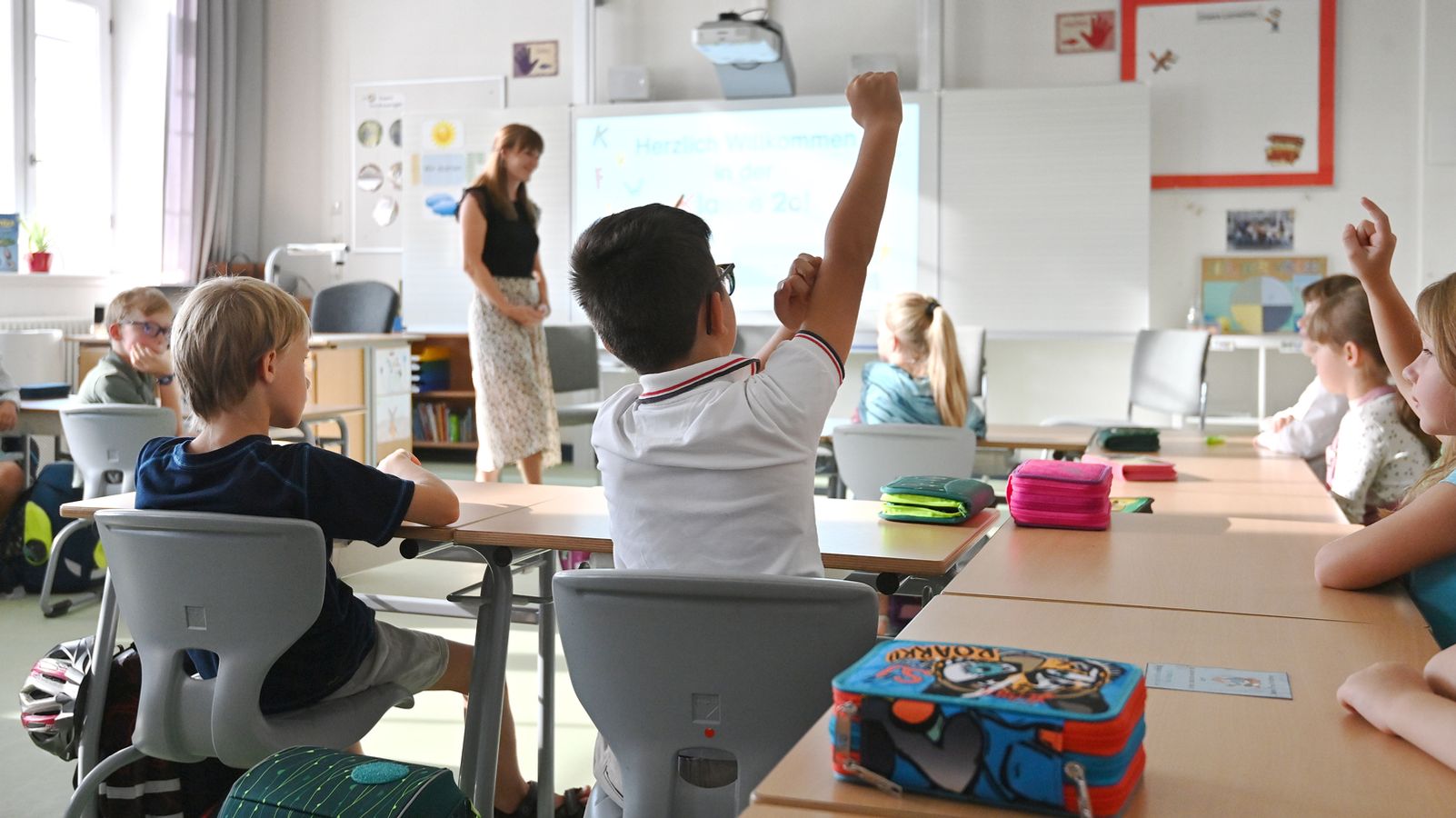An extra hour of German language lessons per week for all grades and an extra hour of mathematics in the first and fourth grades: Bavarian Education Minister Anna Stolz, of the Free Voters party, announced this – in response to poor performance in the recent Pisa study.
“Reading, writing and arithmetic are the most important things our students should be able to do,” Stolz said in his explanation. In the past few weeks, it has held numerous discussions with school family members and scholars and has worked intensively on a package of measures.
More individual support – especially when it comes to reading
In addition to more German and mathematics lessons, all children should receive more individual support. To that end, Stolz wants to introduce mandatory reading screenings “to give teachers better information about reading skills and to enable more accurate diagnosis.” According to the ministry, the package of measures also includes targeted training for teachers, educational materials and strengthening early childhood language support.
“Within this fixed framework, schools also receive additional educational freedom,” Education Minister Stolz said. “At the end of the day, teachers are the local professionals who know their students best.”
It is not yet known where the cuts will be made
The changes also affect the number of hours per week: the first semester gets an extra hour per week, while the fourth semester gets one hour less. This means that in the future there will be 24 hours of lessons per week in the first and second grades and 28 hours of lessons per week in the third and fourth grades.
The bottom line is that there should not be more teaching hours in primary schools – so they must be reduced elsewhere. Where exactly is still unclear. In Stolz's view, the curriculum should focus on the basics again: “We have to have the courage to set priorities and dare to try new things.”
BLLV applauds the flexible framework – but still has questions
Praise for the plans comes from the Bavarian Teachers' Association (BLLV): “Yes, this is exactly what modern school management should look like,” wrote president Simon Fleischmann. Thus, the Ministry of Culture provides a framework within which school management can act flexibly on site.
When asked by BR24, a ministry spokesperson confirmed that the Ministry of Culture gives schools freedom in how to adapt the timetable. However, there will be a list of “do not cover” topics. What these are is currently being worked on. This approach recognizes that “professionals are colleagues who can then work within this specific framework with appropriate requirements,” Fleishman praised.
But there are still questions that need clarification. There is an urgent need to focus on basic skills, but also on comprehensive education, which is much more than just German and mathematics. Fleishman also wonders: “Where do all the elementary school teachers come from who take on all these tasks that they're supposed to come from?” After all, there is still a shortage of teachers, which leads to the cancellation of lessons in primary schools and puts enormous pressure on teachers.
Introduction to the upcoming academic year
The new schedule is scheduled to be implemented for the next academic year 2024/2025. According to the Ministry of Culture, the Bavarian Cabinet will deal with this matter in the next few weeks and will amend school regulations accordingly. Since Prime Minister Söder recently called for similar steps, it can be assumed that the CSU will not stand in the way of Free Voters Minister Stolz's proposals.
The focus of disagreement could be topics that the Ministry of Culture classifies as flexible. Prime Minister Söder is unlikely to be able to influence religious education, for example.

“Tv expert. Hardcore creator. Extreme music fan. Lifelong twitter geek. Certified travel enthusiast. Baconaholic. Pop culture nerd. Reader. Freelance student.”







More Stories
The front square of the harbor is called “Hermann Schmitz Platz”.
Construction of the world's tallest telescope has been completed
Roma and Sinti have to change places